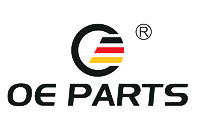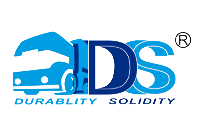Shentou provides on site services
such as factory audit and pre shipment
inspections in China
such as factory audit and pre shipment
inspections in China
Shentou Services
Verifying Measuring Instruments
A European buyer came to inspect a brake disc factory in China recently. During the tour he visited the R&D lab, incoming inspection lab, molding sand lab, chemical analysis lab at furnace, machining workshop, coating & packing area, etc. and carefully checked the green periodic calibration labels on the Link machine, hardness tester, tensile test machine, metallurgical analyzer, spectrum analyzer, electric scale, thermo probe, dial gauge, position gauge, automatic detector and coating thickness gauge. All instruments with current validity dates on the labels were considered OK, while those without labels or with expired validity dates on the labels were determined to be non-conforming. The validity and conformity of the instruments themselves meanwhile were not checked.
The calibration of the measuring instruments not only demonstrates a company’s capability in product quality control but also guarantees the long-term stability of the product quality. Every year, many international buyers of automobile spare parts would come to visit and inspect their suppliers in China for multiple times. The validity and conformity of the measuring instruments used by the supplier are naturally one of the key focuses during the inspections, but obviously it is not enough to just rely on the calibration labels.
Yet for international buyers not professionally trained in quality management, how the validity and conformity of the measuring instruments should be verified?
In this article we would share our experience on what to watch for when checking the suppliers’ measuring instruments based on our years of practices assisting international buyers to manage the Chinese suppliers’ quality systems.
What the measuring instruments include and the differences between measuring tools and gauges
Measuring instruments refer to the equipment that are used to determine the conformity of products, including general measuring instruments and special testing equipment. Instruments that are used for process parameter monitoring also include measuring equipment for safety, environmental protection as well as compliance.
Measuring tools are tools for measurements and calculations where the measured units and limits are directly displayed, such as ruler, electronic balance, protractor, and measuring cup.
Gauges are sample frames, sample plates and non-standard gauges including special test benches that are used in production, inspection and calibration to detect such dimensions as hole positions, peripheral shapes, relative positions of parts with complex shapes.
The differences between measuring tools and gauge are that measuring tools are universal measuring instrument whose data can be read directly, such as venire calipers, CMM (Coordinates Measuring Machine) and YVM (Quadratic Measurement), whereas gauges are instruments whose data cannot be read directly, such as jigs, fixture and gauge blocks. These gauges measure the part profiles or sides mainly through visual inspection, measuring meters, calipers, core bars, and plug pieces.
The definition of and relation between Internal and outsourced calibration
Internal calibration refers to in-house calibrations laboratory performs on the measurement equipment used for inspection or calibration on their own based on specified methods and requirements.
Outsourced calibration refers to sending measurement tools, equipment and instruments to be calibrated to a qualified third-party laboratory for calibration and verification.
The testing piece for in-house calibration must meet the following requirements: the standard parts have to be certified by a CNAS lab, gloves must be used when using these parts and the parts should be wiped clean and daubed with aviation gasoline after use.
The in-house calibration is built on the outsourced calibration. If there is no outsourced calibration, there will be no calibration standard parts. The purpose of both internal and outsourced calibrations is to obtain the accuracy and reliability of the measurement data so that the perfection of product quality could be guaranteed.
Qualification of the calibration personnel
Factories usually choose in-house calibration for the length measuring instrument and gauges and outsourced calibration for the others. For factories with relatively large scale, they will usually have their internal calibration technicians receive outsourced training and take up their posts only after they pass the exams and become certified.
The factories will typically choose those CNAs qualified institutions or metrological verification agencies set up by the national metrological authorities for the training and certification. The qualification certificates of their calibration technicians will be proactively presented by these factories during the audit.
For some small factories, however, they would carry out in-house calibrations by their own staff who have no official qualification, for either costs saving or failing to understand that the calibration staff must be properly trained and certified first. The results of such calibrations are invalid and not acceptable.
Things to watch for when inspecting or auditing the supplier’s measuring instruments
1. Check whether the supplier has established a list of measuring instruments, and whether the list clearly defines information such as the names, manufacturers, calibration dates, next calibration dates, calibrators and calibration types of the measuring instruments.
2. Representative measuring instruments can be selected on site according to the production characteristics of the supplier. Take the brake disc manufacturer as an example, it is recommended to check the following:
○ Length measuring instruments: vernier caliper, micrometer, CMC, etc.
○ Precision measuring instruments: ring gage, plug gage, thread gage etc.
○ Mechanical measuring instruments: tensile testing machine, hardness testing machine etc.
○ Thermometric measuring instruments: thermometer etc.
○ Other measuring instruments: metallurgical analyzer, spectrum analyzer etc.
These and other measuring instruments that are in use or not in use should be checked for the periodic calibration green labels or with other identical labels to prove whether they have been calibrated and met the requirements, whether the numbering of the measuring instruments are consistent with those in the list, whether the calibration dates are in line with the next calibration time and whether the internal calibration personnel are qualified, etc.
3. Check the validity of the external calibration reports: whether the external calibration reports provided by the supplier are by third-party testing agencies with qualification certificates attached.
4. The temperature of measuring room is also critical. Normally the temperature should be set at 20+/-5°C, and the humidity should be at 60+/-25%RH. Check also the records of temperature measuring.
5. Calibration of gauges:
○ Check if the list of self-made gauges and special gauges clearly include information such as the name, number, manufacturing date, verification date, calibration date, next calibration date, calibrator, and calibration type of the gauges.
○ Check whether the verification records and methods of self-made gauges are in conformity with requirements.
○ Whether the purchased calibration parts or calibration blocks of special gauges have been tested by qualified third-party testing agencies.
○ Whether the regulations on gauge maintenance and life management have been established.
This article was first published in October, November & December of2019
keywords:Product Development Project Management Services Post COVID-19 Factory Audits







